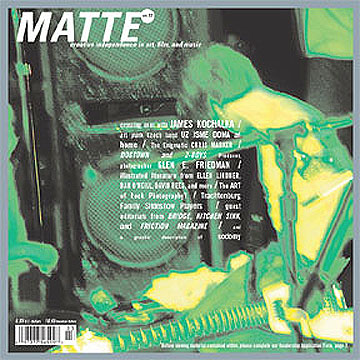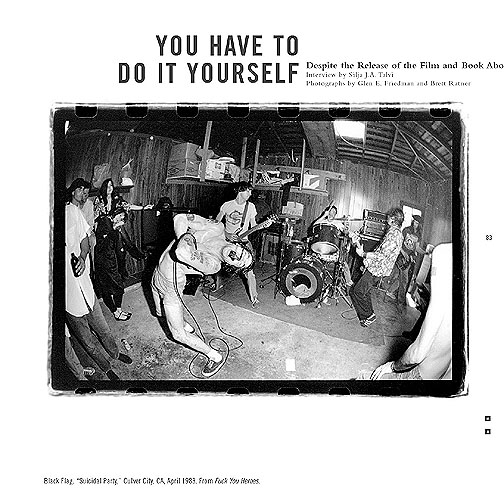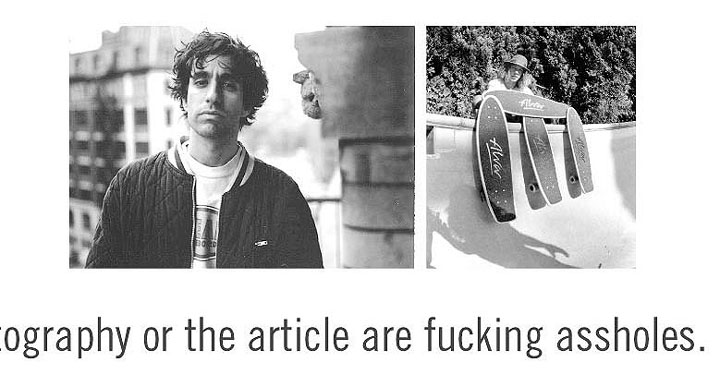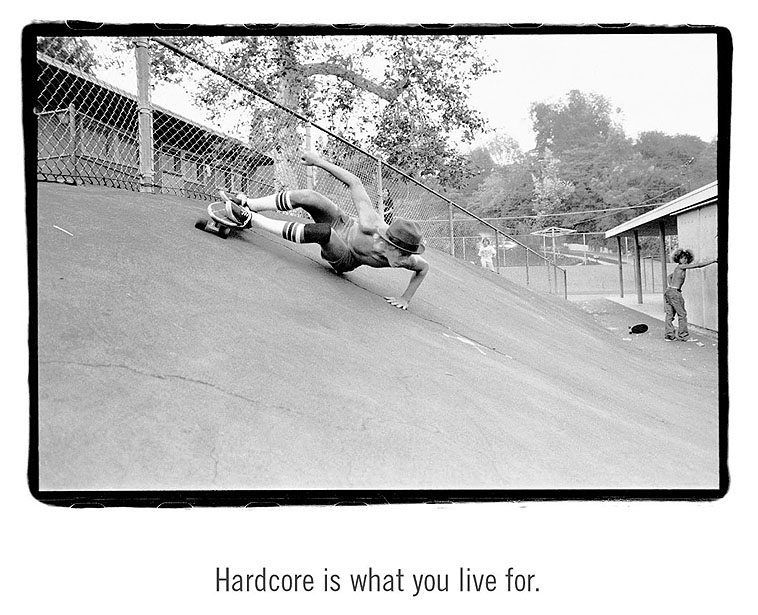Fall-Winter 2002-2003

MATTE magazine
creative independence in art , film, and music
no. 03
__________________________________________________________
YOU HAVE TO DO IT YOURSELF
Despite the Release of the Film and Book About DogTown and Z-Boys, Photographer Glen E. Friedman Is Still an Outsider
Interview by Silja J.A. Talvi
Photographs by Glen E. Friedman and Brett Ratner



